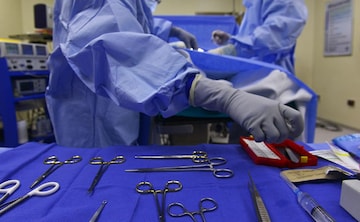Digital Ventilator Developed In 4 Days By Team Of Six Youngsters

Six young men from a Chennai company have developed the prototype of a remote-controlled digital ventilator in four days during the lockdown, the firm’s co-founder has said. Experts in the field, though reluctant to compare it with those in use in hospital ICUs, say it has many advantages.
L N Rajaram of Kritilabs Technologies Pvt. Ltd in Taramani, who led the team, said the idea came up a couple of days before the lockdown began on March 24. The design for the device, which can be controlled by a smart phone app, was done at home, but the team had to travel to the office to assemble it, he said.
It was made with material available in the company factory and has all features of existing ventilators, he said. “As COVID-19 cases began rising in TN, we knew hospitals will need ventilators. But there was no discussion on what type of ventilators are needed.
The ones available in most ICUs may cost lakhs. So we developed one suitable for today’s needs with all basic facilities,” said Rajaram, who as joint director in a defence project cell was helped design and deploy systems aboard INS Vikrant, said a device he developed for the oil sector to prevent pilferage five years ago gave him the idea for this one.
“The mechanism is the same,” he said. “Since it is battery-powered, it can be taken anywhere. The rechargeable battery will provide power for six to eight hours,” he said. Rajaram, whose firm bagged the NASSCOM award for best IOT company, is aware it is only a prototype.
“I am talking to many doctors to get the devise tested. I am also trying to get a trial done using a dummy lung under experts. However, if we get support from the government, we can produce more than 10,000 pieces in a short span of time,” he added.
Dinesh Ekambaram, a senior anaesthetist and ICU specialist based in Bangalore, said devices presently used in hospitals had a lot functions needed for medical emergencies. “But this is promising and advanced.”



